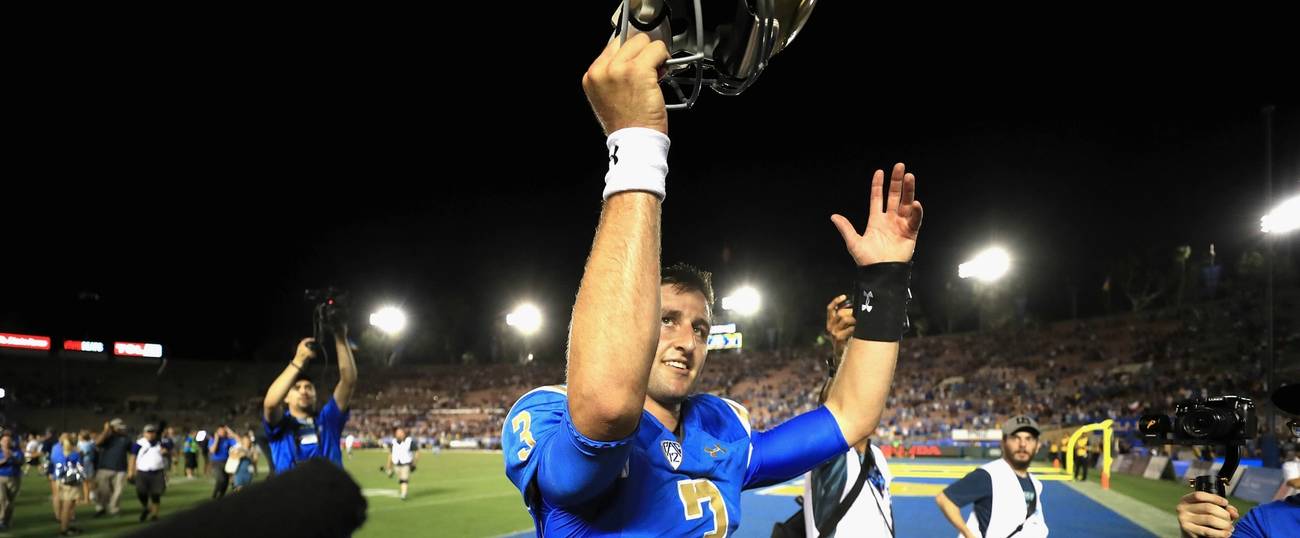It’s 2017, and the Best Athletes Are Jews
From the Rose Bowl to the US Open, nothing but nachas




By half-time at the Rose Bowl this weekend, UCLA was trailing 38-10. By the end of the third quarter, Texas A&M managed to widen its lead to 44-10. And even though the Bruins started scoring in the fourth, many fans were slouching towards their cars, considering the game over.
Enter Josh Rosen: With 43 seconds remaining, the Bruins’ quarterback faked a spike and then threw a 10-yard touchdown pass to Jordan Lasley, leading his team to a 45-44 victory, the second greatest upset ever in college football history and one of the most miraculous comebacks ever in professional sports.
Did we mention Rosen is Jewish?
Alright, so not exactly: His father, Charles Rosen, is a spine surgeon and a member of the Tribe, and his mother, the journalist Liz Lippincott, isn’t. Rosen attended Catholic high school, and is an atheist. But he’s still a Rosen, and he still may be the NFL draft’s number one pick—potentially ending up with the beleaguered Jets—and he’s still, as they say on ESPN, the source of much nachas.
And so’s Diego Schwartzman! The Jewish Argentinian tennis player—his family fled Germany and found refuge in Buenos Aires—is ranked 33rd in the world, and will take on Spain’s Pablo Carreño Busta at the U.S. Open’s Quarter Finals today after beating France’s Lucas Pouille at the Round of 16 on Sunday.
Speaking to the Association of Tennis Professionals’ website, Schwartzman said being Jewish, and enjoying his community support, has helped prepare him to playing the big games at Arthur Ashe stadium in New York. “I am Jewish,” he said, “and in Argentina, we have many Jewish (people) there, and all the people there know me…(They say), ‘Enjoy! Good luck this season. Come on, keep going!’”
But not all Jewish sports superstars are feeling the love these days: Ian Kinsler, the Detroit Tigers’ second baseman, may not return to the team next year, according to news reports. Embracing the sort of subdued humility that Jews are supposed to feel in the month leading up the High Holidays, Kinsler put his faith in higher powers. “I have no problem trying to pass my experience along as best I can to the other players and help any way I can and see where that goes,” he said. “I don’t know what their plans are. That’s probably a better question for management than myself.” May the divine management continue to smile on Jewish athletes everywhere, and may they all be inscribed in the ever-growing book of Jewish jocks.
Liel Leibovitz is editor-at-large for Tablet Magazine and a host of its weekly culture podcast Unorthodox and daily Talmud podcast Take One. He is the editor of Zionism: The Tablet Guide.